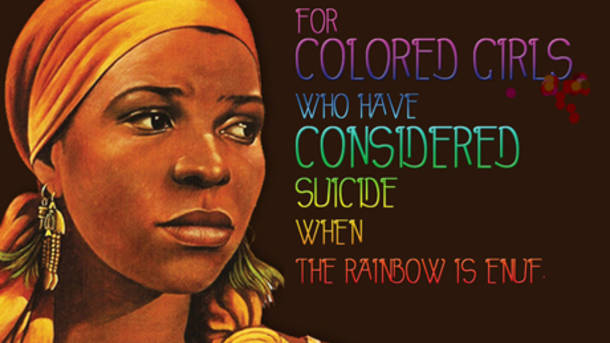Black Masquerade: When Feigning Joy Is A Defense Mechanism
When I pressed play on Donald Glover’s ‘This Is America’, I was completely unprepared for what was to transpire within the first 45 seconds of the visual masterpiece.
There was Glover, shirtless, hair grown longer than usual, clad in nothing more than a pair of button-fly calico trousers and two chains adorning his neck contorting his body in motions both acute and languid to a familiar beat. Why was he making that coonish face? And why…OH MY GOD!!! Did he just shoot somebody?! Pandemonium breaks out in the background, but Glover (also known by his alter ego, Childish Gambino) commands our attention – horrifying and regaling us – as he seamlessly moves from one random act of violence and into the next perfectly executed dance craze.
Indeed, this is what it’s like to live in America. The pendulum between horror and revelry shifts so vigorously that as a nation, Americans are less sensitized to the effects of every day terror. Already, just it did with Sandy Hook and other mass shootings; the conversation around the Parkland shooting has begun to wane from the fore. Something more ‘important’- or more importantly – something more entertaining is ever on the hunt for our collective attention. And we give in to pull, without fail, as anticipated. This has been and will be discussed in myriad think pieces and hot takes over the course of the next few days.
Anyone who has watched ‘This Is America’ will walk away from it with his or her own reaction. Each of us will be affected by it ways that are peculiar to us individually. For me, watching Glover oscillate between demonstrating expressions of joy and disdain in the midst of violence provoked an unanticipated response in me: It reminded me of the coping mechanisms that women and people of color have had to employ to survive in communities hostile to their presence.
“SMILE! Nothing that can be that bad!”
For more times than I can remember, I’ve heard this shouted at me from random men at bus terminals, from street corners where they were hanging out…even from another car while we were idling in traffic. On one occasion, I had just found out that I had lost my job during one of the many economic downturns that plagued the early 00’s. So yeah, things were actually that bad. I wanted to lash out at the man mindlessly commanding me to smile. I wanted to stretch in perfect Mister Fantastic form and slap the taste out of his ignorant mouth. I wanted to unleash the full force of my anger and distress on him. However, I also knew that doing so could possibly lead to more damage to my personal being than I was prepared to endure. So I did what I had been doing for years: I bared my teeth in the direction of the cat caller – grotesquely – hopes that it would shut him up. This generally satisfies a cat caller. The more annoying ones take the flashing of teeth as an invitation to carry on conversation, often in hopes of getting a number. (Pro tip: it’s not.)
In the wake of #MeToo, women all over the world have talked about circumstances under which they have had to smile and act their way out of unwanted advances or assault. They’ve had to do this while every cell in their body recoils at unwanted touch or lewd conversation.
Joking one’s way out of high stakes, unpredictable and possibly dangerous situations is not a novel coping mechanism. Glover reminds us of this with the minstrel display he sprinkles into his performance. The image of the cooning, jiving, soft shoe Sambo/Jemima has been one of America’s most beloved and enduring caricatures of Blackness in pop culture.

Ole Sambo won’t hurtcha, this archetype of Black subservience cries. These images were/are comforting to the white majority. After all, what harm could a grinning fool unleash on his tormentors, even and especially in the throes of that torment? To the oppressor, this may seem duplicitous upon reflection; but for those who have had to employ smiles, speech that is neither too loud nor too threatening, reducing ourselves so as not to appear too uppity, the uncountable imaginative ways the victimized work to preserve the essence of their lives while reducing the full expression of their humanity, this masquerade is survival.

That Glover is able to achieve this dichotomy, i.e. the simultaneous portrayal of both the perpetrator of violence and an agent of the panacea America, and the world by extension, has come to depend on is an artistic marvel. And it’s disturbing. Convention now demands that the burden of forgiveness and healing be placed on those who have been on the receiving end of an atrocity, doing more to absolve the perpetrators of their malevolence than to provide restorative justice to the maligned. Case in point: After white nationalists marched and violently attacked counter-protestors in Charlottesville, America’s current president opined that there was ‘hatred and bigotry on many sides’, despite all evidence to the contrary. David Duke, an unabashed white supremacist and former Grand Wizard of the KKK lauded his statement, calling it “very good”. And while there are always calls for the injured (women and/or minorities in particular) to move on, there is rarely a call to hold offenders to account. Victims are expected to smile and dance their way through their anguish. This performance, this masquerade, is a crutch individuals and communities under siege have relied upon for centuries, and very little has changed over time. So too have provocateurs in pursuit of their absolution. And just when you thought you had given enough, performed enough, earned your right to your body and your self, the harpies who have defined your body/art/beauty/talent as their property chase and hunt you down, demanding your give more.
There will be more dance crazes. There will be more viral videos centering on the semi-literate and disadvantaged. They will become memes and gifs. But before you consume the next slice of what presents as vapid entertainment in what is now in limitless supply, lets ask ourselves a singular important question: Whose pain is this meant to distract me from?





